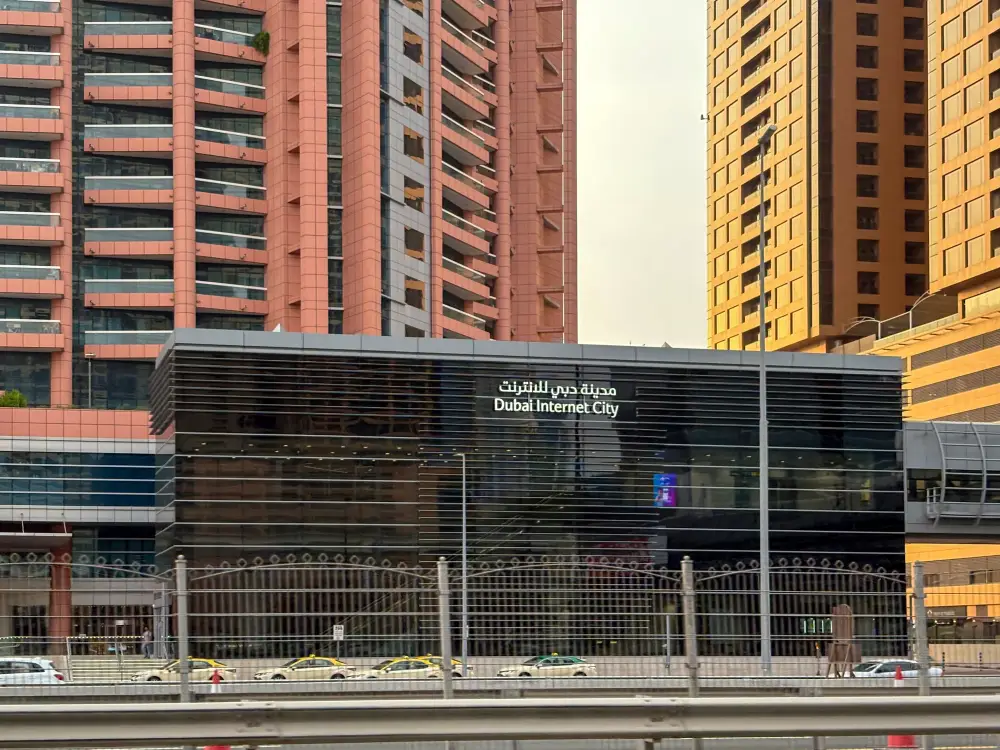
Các bigtech Trung Quốc như ByteDance, Huawei và Alibaba đang đổ về Dubai
-
Dubai đang trở thành điểm đến công nghệ hàng đầu cho các tập đoàn Trung Quốc, như ByteDance (TikTok), Huawei, Alibaba trong nỗ lực mở rộng toàn cầu giữa lúc đối mặt khó khăn trong nước.
-
Trọng tâm của làn sóng này là Dubai Internet City (DIC) – công viên công nghệ quy tụ cả Microsoft, Google, Amazon và các đối thủ Trung Quốc. ByteDance chiếm nhiều tầng văn phòng tại đây và thu hút hàng trăm nhân viên Trung Quốc, với chính sách đãi ngộ hấp dẫn.
-
Huawei đã chọn Dubai làm trung tâm khu vực từ 2016, phục vụ cho mảng viễn thông, điện tử tiêu dùng và dịch vụ đám mây tại Trung Đông. Họ có 6 cửa hàng tại UAE, 4 nằm ở Dubai. Các mẫu điện thoại Mate X6, Mate XT và Pura 80 bán hết trong ngày đầu ra mắt.
-
Trong mảng cloud, Huawei cạnh tranh cùng Alibaba Cloud, Microsoft Azure và AWS. Năm ngoái tại Gitex Global, Huawei giới thiệu Cloud Stack 8.5, phục vụ Trung Đông và Trung Á, hiện đã có 6.000 đối tác trong khu vực.
-
Alibaba Cloud mở trung tâm dữ liệu tại Dubai từ năm 2016, và mới đây ra mắt Trung tâm Đào tạo Trung Đông & Châu Phi tại DIC để hỗ trợ khách hàng, đối tác qua hội thảo và chứng chỉ.
-
AliExpress đẩy mạnh đưa hàng Trung Quốc vào Trung Đông, gồm xe điện, kính thực tế tăng cường (AR). Trong lễ hội mua sắm 618, 65% doanh số toàn cầu của Rokid đến từ Trung Đông.
-
BYD, Nio và Zeekr mở showroom ngay trên đại lộ Sheikh Zayed, cạnh tranh với Rolls-Royce, Bentley. Roland Berger đánh giá thị trường ô tô Trung Đông có tiềm năng phát triển tương đương Trung Quốc giai đoạn đầu 2000s.
-
Pony.ai, startup xe tự hành Trung Quốc, hợp tác với RTA Dubai để thử nghiệm robotaxi trong năm nay, hướng đến dịch vụ thương mại không người lái.
📌 Dubai đang vươn lên trở thành "Silicon Valley" của Trung Đông khi các ông lớn công nghệ Trung Quốc như Huawei, ByteDance và Alibaba chọn nơi đây làm trung tâm mở rộng toàn cầu. Với chính sách thân thiện doanh nghiệp, miễn thuế trong các khu "free zone" và chiến lược phát triển "smart city", Dubai thu hút mạnh mẽ nhân tài và đầu tư công nghệ từ Trung Quốc. Huawei xây dựng đế chế từ điện thoại đến cloud; Alibaba đẩy mạnh logistics và thương mại điện tử; còn ByteDance đổ bộ nhân sự để biến DIC thành trụ sở quốc tế. Trong khi đó, các thương hiệu ô tô điện và robotaxi Trung Quốc như BYD, Zeekr, Pony.ai tận dụng sức mua cao và xu hướng công nghệ của khu vực.
--> Việt Nam cần học hỏi mô hình Dubai: phát triển các khu công nghệ ưu đãi, thu hút nhân tài quốc tế, thúc đẩy hợp tác với các tập đoàn AI và cloud, đồng thời định vị mình là cầu nối giữa Đông Á và Trung Đông trong chuỗi giá trị công nghệ.
https://www.scmp.com/tech/big-tech/article/3318819/tiktok-huawei-chinese-tech-giants-flock-arab-tech-hub-dubai
From TikTok to Huawei, Chinese tech giants flock to Arab tech hub Dubai
Thảo luận
Follow Us
Tin phổ biến



